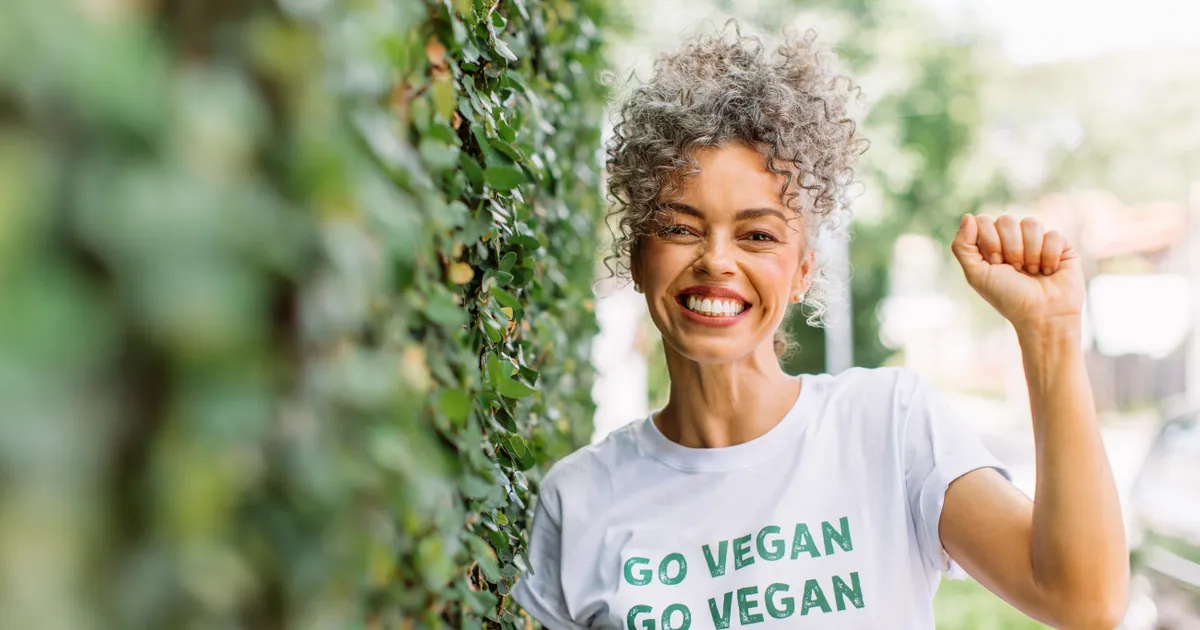There are many paths to veganism. For some people, it’s an ethical choice based around animal rights and a sustainable planet. For others, it’s about choosing an optimal diet.
Regardless of why you’ve taken an interest in veganism, you’re likely wondering how to make the transition. So, let’s look at 6 ways you can embrace a vegan lifestyle.
 Shutterstock: JLco Julia Amaral
Shutterstock: JLco Julia AmaralGet Familiar
You can’t become a vegan without first learning a few basics. At its heart, veganism is the practice of abstaining from animal products. Vegans are opposed to the commodification of animals; therefore, they do not use any products or consume any foods made using animals.
Although this definition applies to all vegans, there are four different strands of veganism that may be more or less attractive to beginners. For example, dietary vegans are primarily opposed to eating animals, whereas ethical vegans extend their views to any industry that disrespects animal rights.
Alternatively, there are environmental vegans, who are committed to reducing their carbon footprint, as well as health vegans, who follow the diet to condition their minds and bodies. 1
Open Your Mind
Even after you’ve developed a good baseline of knowledge, it’s recommended that you continue absorbing everything you can about the vegan worldview. Your education will serve your intentions in a few key ways.
Reading books and watching documentaries about veganism will give you greater exposure to your cause. Understanding the cruelty involved in animal slaughterhouses and the cultural opposition to veganism can reinforce your commitment.
Opening your mind to different resources – including groups like Vegan Awareness Foundation and Farm Animal Rights Movement – will also reveal the social and political goals of veganism. Whether you choose to get involved in these organizations or not, being aware of these movements will deepen your understanding of the issues at play.
Plan Your Transition
Once you’ve chosen the path to veganism that is right for you, it’s time to start planning the smoothest way to transition.
One approach recommends using the vegetarian diet as a stepping stone, in which you abstain from meat before you cut out dairy and eggs. Another option recommends eliminating animal products one by one until you gradually reduce your pork, beef, poultry, and fish consumption to zero. 2
Some people find these multi-step approaches comforting, while others prefer to go cold turkey (no pun intended) and become vegan overnight! Whichever plan you choose, make sure you’re replacing the meat portion of your meals with a selection of whole grains, legumes, tofu, nuts, seeds, and beans.
Adapt To Challenges
Initially, the biggest challenge can be sticking to your new vegan diet – not because you’re missing meat, but because certain situations make it difficult to find an alternative.
You may have to switch grocery stores because certain retail chains don’t offer enough vegan options. Or, you may notice that your favorite restaurant no longer accommodates your preferences.
You might even feel some social repercussions for going vegan. Family and friends may react to your lifestyle change with suspicion or offense, even though your choice has nothing to do with them. 3
Prepare to field a number of questions about your diet, and don’t be dismayed if you feel like you’ve wasted your breath – because you haven’t! You may be someone’s first point of contact with veganism, so it’s an opportunity to share what you know (without preaching, of course…).
Keep An Eye On Your Health
As surely as veganism is not a one-size-fits-all diet, people will react differently on a physiological level. Regardless of whether you choose a raw vegan diet of unprocessed plants, or a “junk-food” diet of meat alternatives, you’ll want to keep an eye on your health.
Deficiencies are common in newbie vegans, as plant-based diets don’t supply necessary nutrients like vitamin B12, iron, taurine, vitamin D3, and carnosine. 4 Worse yet, you may not notice these deficiencies until your body is at drastically low levels. Long-term neglect of these essential nutrients can result in malnourishment, anemia, and even blindness. 5
Supplementing your diet accordingly will ensure that you thrive as a vegan. Yet another reason to educate yourself before you take on this diet!
Embrace Your New Community
There will be moments when you second-guess your decision, and that’s natural! The internet is full of false promises about the ways veganism will change your mind and body, but it’s also loaded with helpful tips that can reward your commitment.
The best way to ground yourself in your practice is to embrace the support of the vegan community. Be sure to research ways you can budget for groceries, find delicious new recipes, and monitor your health. After all, there are approximately 79 million vegans in the world 6, and many of them are trying to make your journey easier!


